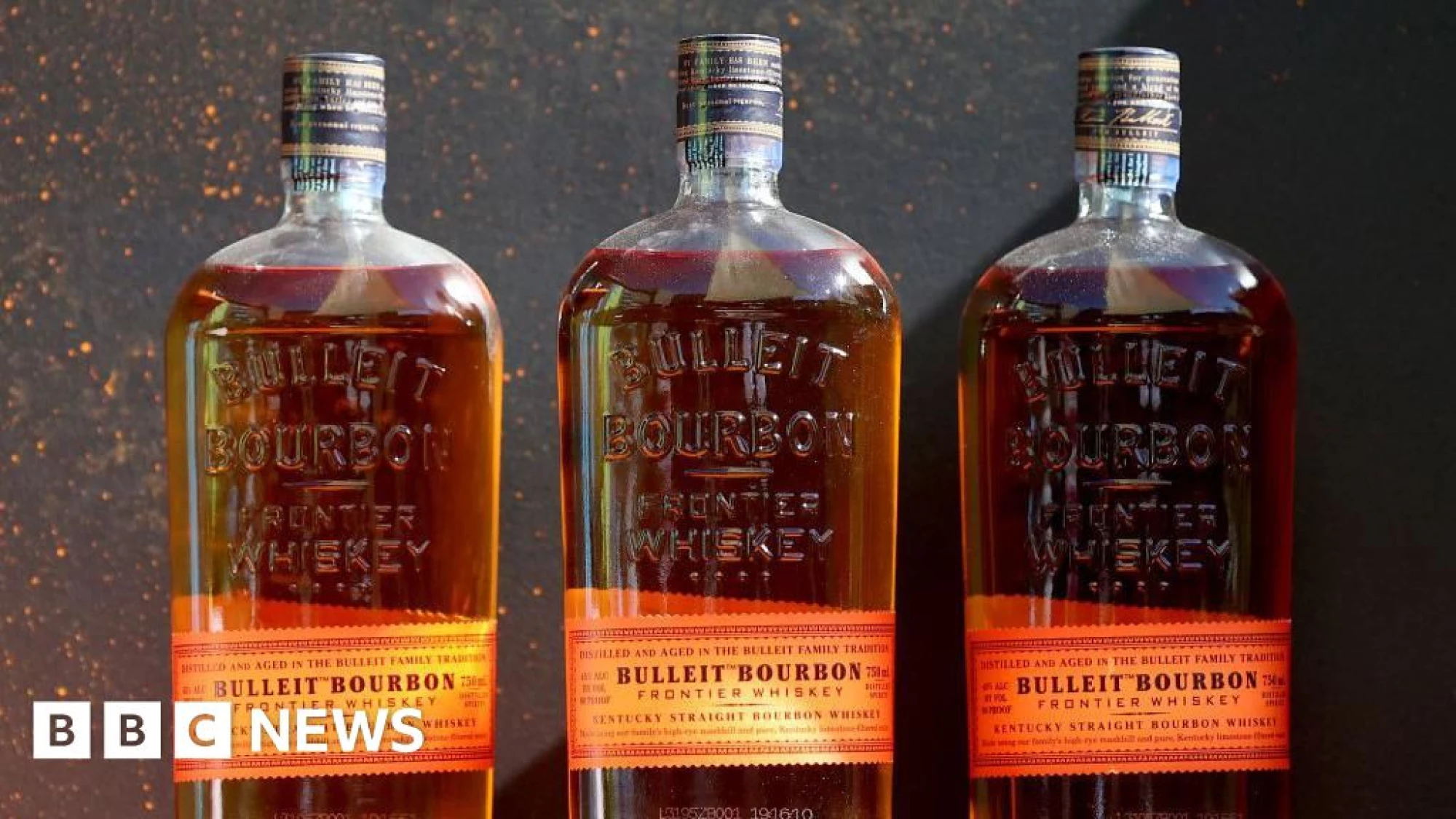How Kentucky bourbon went from boom to bust

Tariffs, oversupply and teetotaling Gen-Zs have all contributed to the downfall of one of America's most iconic liquors.
Watch LiveBritish Broadcasting CorporationHomeNewsSportBusinessInnovationCultureArtsTravelEarthAudioVideoLiveHomeNewsIsrael-Gaza WarWar in UkraineUS & CanadaUKUK PoliticsEnglandN. IrelandN. Ireland PoliticsScotlandScotland PoliticsWalesWales PoliticsAfricaAsiaChinaIndiaAustraliaEuropeLatin AmericaMiddle EastIn PicturesBBC InDepthBBC VerifySportBusinessExecutive LoungeTechnology of BusinessFuture of BusinessInnovationTechnologyScience & HealthArtificial IntelligenceAI v the MindCultureFilm & TVMusicArt & DesignStyleBooksEntertainment NewsArtsArts in MotionTravelDestinationsAfricaAntarcticaAsiaAustralia and PacificCaribbean & BermudaCentral AmericaEuropeMiddle EastNorth AmericaSouth AmericaWorld’s TableCulture & ExperiencesAdventuresThe SpeciaListEarthNatural WondersWeather & ScienceClimate SolutionsSustainable BusinessGreen LivingAudioPodcast CategoriesRadioAudio FAQsVideoLiveLive NewsLive SportHomeNewsSportBusinessInnovationCultureArtsTravelEarthAudioVideoLiveWeatherNewslettersWatch LiveHow Kentucky bourbon went from boom to bust3 days agoShareSaveRobin Levinson KingBBC NewsShareSaveGetty ImagesBulleit Bourbon reported a more than 7% sales drop this fiscal yearAs American as apple pie, Kentucky bourbon was booming after the last Great Recession ended. But as the economy has waned post-Pandemic - and with multiple trade wars on the horizon - the market may be drying up.
Although the whiskey, which is traditionally made with corn and aged in charred oak barrels, has roots going all the way back to the 18th Century, it wasn't until 1964 that it became an iconic piece of Americana, when Congress passed a law declaring it a "distinctive product of the United States".
But drinking trends come and go, and by the end of the 20th Century, bourbon was considered a bit old fashioned - pun intended.
"You often see these kind of generational shifts where people don't want to drink what their parents drink," said Marten Lodewijks, the US president of IWSR, which collects alcoholic beverage data and provides industry analysis.
Then, as the world recovered from the 2008 recession, drinkers seemed to rediscover this classic spirit, for a few different reasons.
https://www.bbc.com/news/articles/ckglnk6yxlko?at_medium=RSS&at_campaign=rss
Rating: 5